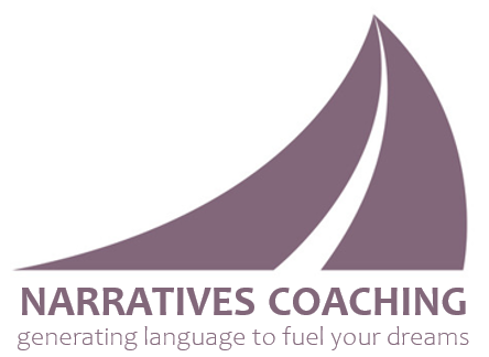Three Keys for Successful Resolutions
Around New Years but also throughout the year, and with the best of intentions, people create resolutions to make desired changes in their lives. Unfortunately, many fail (research shows as many as 88% fail to keep their resolutions), become discouraged, make excuses for why they didn’t or couldn’t, and surrender the desire as unachievable. Helping people capture a pure vision of their hopes and dreams and then have the power to see them through to full realization is the secret sauce of coaching, is it not? And, while we all seek the “clear the bases home runs” for our clients, isn’t our true measure of success just as much about counting the singles, doubles and triples which, while less impressive and dramatic, create measurably sustainable and lasting value? Below, for your thoughtful consideration, are three thoughts for why resolutions so often fail, along with some simple guidance for how to help clients be more successful moving forward.
- The desire is focused on eliminating something they no longer want – a habit, behavior, self-defeating pattern of thinking, etc. C. G. (Carl) Jung posited “what you resist, persists”. Further development of this axiom demonstrates that “what you resist, persists – and in fact expands” and this idea is at the heart of driving and deriving the change you want in your life. I’ve also heard this referred to in terms of The Law of Attraction (an idea I’m neither for nor against) – you always get (attract) more of what you focus your energy on. Focus on a problem (the thing you don’t want), and the problem actually increases; focus increasingly on what’s wrong, and you get more of what’s wrong. Someone once told a story about Mother Theresa, who when invited to join an anti-war rally, humbly declined, but then offered “if you ever hold a pro-peace rally, be sure to invite me” (paraphrased, and of course I wasn’t there and don’t know that this actually happened – but it’s a wonderful thought and serves as a great example for distinguishing between what you actually want (more peace) versus what you are trying to resist (less war)). The more helpful practice is to see, as clearly as possible, that thing you don’t want, but then also envision what it is you actually DO want, then focus all your energies and resources on that. Focus on the solution and the solution increases; focus on the positive outcome, thought, habit, behavior, belief, etc. and it will increase naturally, through the law of attraction and process of habituation.
- Nature abhors a vacuum – this Aristotelian idiom (Horror Vacui) represents a fundamental law of nature and is central to the idea of creating space for change – not empty space where nothing exists, but deliberate and intentional space where new realities, habits, behaviors and self-affirming patterns of thinking can take root and begin to grow. I’ve worked with many people who were successful at identifying and isolating negative habits, behaviors or patterns of thinking, and focused significant energy on trying to “disappear” them – a noble but fruitless venture fraught with disappointment and frustration. You can’t “disappear” anything that exists, because it exists. You can, as a more helpful practice, replace something which exists with something that doesn’t yet, through the deliberate act of creation. If something exists in your life and is not serving you or helping you achieve the outcomes you desire, acknowledge that it exists and is taking up time and space, then replace it with something that will serve your life in beneficial ways; focus your time and energy on these newly-created thoughts, activities and practices and eventually they’ll become your default way of being (again, this is exactly what we help clients do – the secret sauce of coaching, yes?). The old patterns will begin to fade (not disappear) into the background and the new, positive patterns will become your new habit (through the process of habituation mentioned above). Why and how? Because practice makes perfect; what you practice is what you get good at – really good if you practice fervently and tirelessly. I love the famous Henry Ford quote “whether you think you can or you think you can’t, either way, you’re right”. This quote speaks centrally to this second point for why people fail – they’re trying desperately to eliminate “I can’t” but not deliberately and intentionally replacing it in any substantive form with “I can”. Henry’s quote also speaks to the first point above – focusing energy and effort on “I can’t” gives you more of “I can’t” – there’s nothing within that practice that creates, establishes, grows or expands “I can”. Nature abhors a vacuum – be sure to replace the thing you don’t want with the thing you do and with practice it will grow and manifest into your heart’s desire.
- The goal, while noble and valid, is too large to actually be achievable (at least in a single bite). I’ve seen this countless times – well-intentioned people creating reasonable goals for themselves, then plowing through the process of defining and refining the goal into commitments that quickly render the desired outcome unreasonably unachievable in any measurable way. In business we call this trying to “boil the ocean” or “eat the elephant” in a single bite – essentially it becomes a piling-on process of expanding the goal’s scope to include all the anticipated aspects of what was, at the start, a fairly simple desire. It’s OK and in fact encouraged to have big dreams and take on the work of making truly transformative life changes, but it’s paramount the process be managed and distilled into achievable chunks such that the client can see progress and experience real wins. A more effective practice is to break a larger goal down into smaller, more easily achievable pieces, and make them SMART, which is an acronym for Specific, Measurable, Aligned, Realistic and Time-bound. All five components are critical for the creation of goals which can be achieved with confidence, and this is a fantastic way to help break larger and longer-term goals into smaller chunks which can be firmly cemented before moving on to the next phase. Again, habituation (the new and desired default way of being) occurs through deliberate and methodical practice, which establishes an increased sense of confidence, causing the new habit (behavior or pattern of thinking) to persist. I love the adage “the future is created by what you do today, not tomorrow”, and lasting change most often occurs as the composite of numerous smaller things you do over time that add up to a greater result. Here’s a worthy saying – small daily actions create substantial change over time; if the actions are constructive, they will produce fantastic results when the collective impact is tallied. And this one too – consistent action is more important than immediate results. Be sure to help your clients create SMART goals focused on today’s actions and activities, then help them see their tangible progress over time.
Bonus Item – The missing element of strong Accountability
It’s no great mystery why people fail to achieve the changes they desire in their lives; as coaches we can ask honest and probing questions and, more often than not, one or more of the above three reasons emerge as catalysts for why clients were unsuccessful. In my experience there’s a fourth which, when coupled with none or one or more of the above, exists as a root cause and deadly guarantor of failure – they didn’t share their commitment with someone willing to advocate for their effort, and/or give anyone permission to hold them accountable for their change process and consequent success. Advocacy and Accountability are massively important and exist at the heart of a coach’s ability to help clients succeed.


The fourth one is like having a sponsor for addiction or alcoholism. Everyone struggling could use a sponsor when trying to turn around from difficult lives….patterns that are hard to break that contribute to the struggle at hand….a life coach. In reading this I see one’s own patterns….one’s narrative….is a huge factor in overcoming those struggles. Very profound!